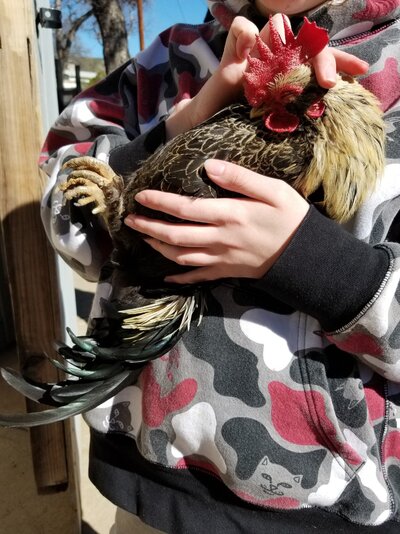mlwheeler1
Hatching
- Apr 3, 2021
- 1
- 0
- 1
I have 2 roosters who get along just fine. I think whether or not they will actually fight depends on their personalities.I'm not neutering to prevent reproduction. I'm neutering to reduce unwanted aggressive behavior and so that I can keep the two roosters together with less fighting. Otherwise the roosters don't have many options other than death which is not an ethical option for me.






